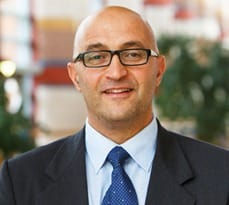This month we decided to share with you the projects of the Circular Economy Centre (CEC) at Cambridge Judge Business School. For the past 3 years, teaching, research, mentoring and impact have gone hand-in-hand at the Centre thanks to 3 key projects.
Circular Economy (CE) and the Internet of Things (IoT)

Through its main ongoing project, the Circular Economy Centre is developing an innovative framework of interplay between the circular economy and the Internet of Things with European academic institutions and practitioners. Since 2017 the Centre is involved in the European Horizon 2020 CE-IoT project funded by the Marie Skłodowska-Curie RISE action. Through this project, many students, under the supervision and guidance of Dr Soufani, the Centre’s director, provide consultancy services to the different industry partners. These services help partners to leverage the interplay between the circular economy and IoT, and to explore novel ways to change the nature of products, services, business models and ecosystems accordingly.
The CE-IoT has been very impactful for all industry partners so far. For example, Cablenet in Cyprus benefited from recommendations on how to provide customers with solutions based on circularity and how to leverage their existing equipment to generate green energy, while Deloitte could benefit from insights on circularity and cybersecurity risks in various sectors. As a result of the mid-year project review with the EC Commissioner, Dr Soufani received from the Consortium: “It has to be noted that the work delivered by the Cambridge students has been of outstanding calibre vividly visible to all of us and deserve a special thank you message.”
Prior to this project, the Centre had already collaborated with the European Defense Agency on a seminal project on circularity in defense. The project led to the development of a circularity roadmap and to the identification of several areas in which to apply circular economy methods in defense
Cambridge Creative Circular Plastics Centre
Since 2018, the Circular Economy Centre has been part of the University’s Cambridge Creative Circular Plastics Centre (CirPlas), which aims to eliminate plastic waste by combining blue-sky thinking with practical measures, connecting expertise across the disciplines, and collaborating with industry and local government. The Centre has contributed to CirPlas through a collaborative project with Cambridgeshire-based packaging company Charpak. The Centre’s team has analysed the viability of a circular business model for Charpak, by mapping how the company has currently approached circularity in its operations and by estimating the impact and financial costs of their choice.
Throughout the research project, Charpak was heavily involved in developing the research question, in the data collection process and in leveraging the knowledge acquired through the partnership to influence its suppliers and stakeholders. The research and its findings led to develop a Circularity Scoring index to evaluate the level of Circularity in the company. Prior to this project, Charpak was already developing a programme that uses recycled plastics to manufacture their products. Thanks to the Index, Charpak could prove its adoption of circularity principles to its stakeholders and identify new areas for improvement, which they are planning to tackle in the coming months.
InnoFrugal conference
In 2018 and 2019, together with Professor Jaideep Prabhu, the Centre was also involved in the organisation of InnoFrugal UK, a conference bringing together academics, managers and entrepreneurs to discuss ways to advance the circular economy and concepts of frugal innovation. Both the circular economy and frugal innovation can help companies to maximise the value and usage of the resources that they need, ensuring the combination of growth with the protection of the planet. In both events, businesses and researchers had the opportunity to share best practices as well as issues encountered, and this prompted new creative solutions and approaches to do more with less.
Not only these projects have enabled the Circular Economy Centre to deeply engage with interested partners from both the business and public sector, but they also provided opportunities for further engagement. Dr Khaled Soufani and other members and associates of the Centre, have been sharing their research and expertise through several webinars, podcasts, educational videos on the circular economy and media articles.
Recently, Dr Soufani has co-authored a paper explaining the 4 strategies that constitute a circular economy business model: cycling, extending, intensifying and de-materialising. This will form the basis of the student-, teaching- and research-led engagements that the Centre is planning for this new year.


